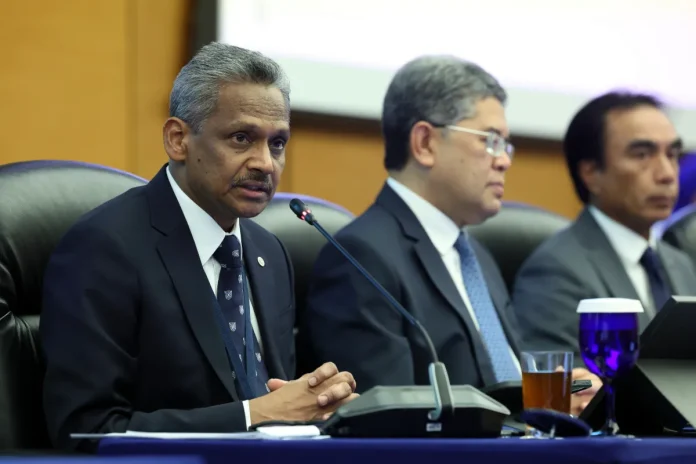KUALA LUMPUR: Malaysia’s stronger ringgit has not dampened export performance, with gross exports rising 6.7% in the third quarter, outpacing the decade-long average.
Bank Negara Malaysia governor Datuk Seri Abdul Rasheed Ghaffour said Malaysia has “never used the ringgit to gain export competitiveness”.
“Despite the strong ringgit that we saw in the third quarter, we still registered higher gross-export growth of about 6.7% in 3Q this year,“ he said at the release of Malaysia’s third quarter 2025 gross domestic product statistics today.
The governor noted that from 2011 to 2019, Malaysia’s gross export growth averaged 5.2%, making the latest export figure stronger than the long-term trend.
Abdul Rasheed noted that gross exports had grown by 3.3% in the second quarter despite the stronger ringgit.
“Our gross export growth is very strong, and this reflects the minimal impact of the ringgit on export performance,” he said.
According to the central bank, the ringgit strengthened against most major trading partners’ currencies in the third quarter of 2025, supported by improving external conditions and stronger domestic fundamentals.
Year-to-date, as of Nov 12, the ringgit has appreciated by 5.3% on a nominal effective exchange rate basis, reflecting broad gains against a basket of currencies of Malaysia’s major trading partners.
It rose 8.2% against the US dollar, in line with the dollar’s global weakening, as the US Dollar Index fell by 8.3% over the same period.
The central bank noted that the ringgit recorded particularly strong appreciation against regional currencies, rising 12.1% against both the Indian rupee and the Indonesian rupiah, 10.5% against the Philippine peso, 7.8% against the South Korean won, 6.8% against the Japanese yen, and 5.6% against the Chinese yuan.
Gains were also seen against the Singapore dollar (3.6%), the Thai baht (2.7%) and the Taiwanese dollar (2.5%) over the same period.
Abdul Rasheed said both external and domestic factors drove the ringgit’s movement.
On the external front, the US Federal Reserve’s monetary policy easing in September, coupled with expectations of further rate cuts amid growing concerns about the US economy’s outlook, has supported the ringgit during the quarter.
“In addition, the announcement of trade agreements between the US and several of its trading partners, including Malaysia, has helped ease tariff-related uncertainties and improve sentiment, further supporting the ringgit’s performance,“ the central bank governor said.
Looking forward, BNM sees Malaysia’s positive economic growth prospects, supported by the government’s commitment to domestic structural reforms and fiscal sustainability, will continue to support the ringgit.
“BNM remains committed to ensuring the orderly functioning of the domestic foreign exchange market,“ Abdul Rasheed said.








